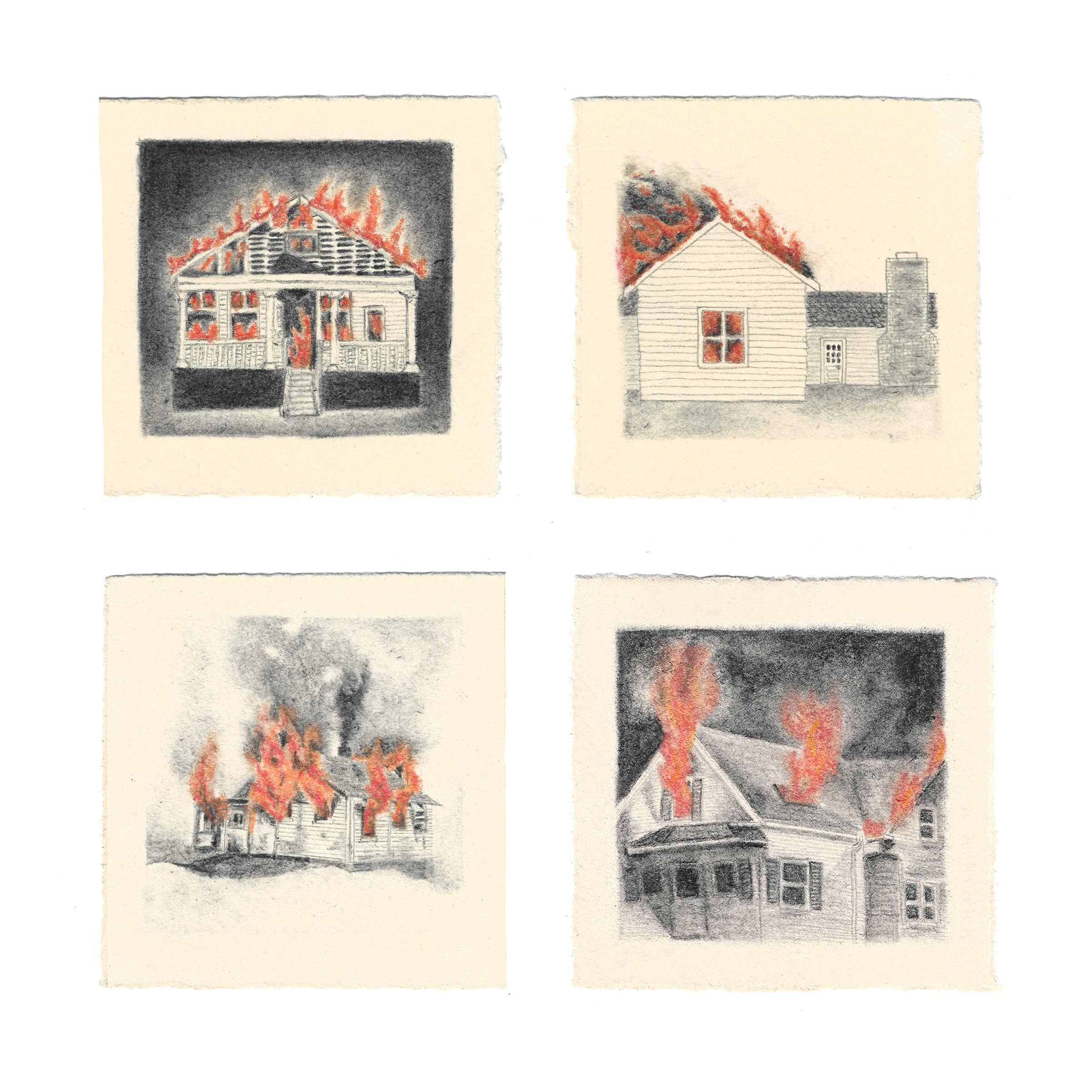
Something radical is taking place at the Noguchi Museum in Queens. Gallery attendants, curators, project managers, handlers, educators, and registrars have taken over to stage an onsite exhibition of staff artworks. What’s more, they’re getting paid to do so.
To say the more than two dozen works on show at “A Living Mechanism,” ranging from paintings to experimental installations to intricate sculptures, are good seems a disservice, as if to ignore the well-known reality that American museums are staffed full of jobbing, hopeful artists (indeed, most everyone on display here holds an arts MFA). But yes, the works are strong and as diverse in scope and subject as the individuals who make the Noguchi tick.
It’s certainly a show art institution laborers deserve. Amid the George Floyd Protests of 2020 with many museums enduring lockdowns, institutions affixed socially conscious statements to their websites and beamed out Zoom seminars on matters of inclusivity and equity. Change was coming. Gatekeepers, it seemed, might loosen their grip.
Not that “A Living Mechanism” is some good will gesture from on high. It was negotiated and fought for by the museum’s Anti-Oppression Committee, a process co-curator Orlando Lacro said proved shockingly successful. “I have never heard of a museum paying participants to do a staff show,” Lacro told Artnet News. “It’s not a performative gesture by the museum; it was a gallery attendant project, fought for by gallery attendants. We were handed a budget with no strings attached, full creative and logistical control. It’s an example of how the staff makes the museum what it is.”
The show’s name not only speaks to the collaborative manner in which it was conceived and executed, but also the spirit in which Isamu Noguchi worked. From Greenwich Village to the hamlet of Mure in Shikoku, Japan, Noguchi was forever in search of collaborators—indeed, the museum held a focused exhibition on the subject in 2010. Shamysia Waterman, the show’s co-curator, said Noguchi’s ability to connect with a wide range of people explains the diversity of the art and its appeal.
“’A Living Mechanism’ harnesses Noguchi’s ethos of relying on every part of space in order to create a harmonious environment,” Waterman said. “His essence lives on.”
Here are five artists on display at the Noguchi Museum.
Harumi Ori, I am Here @ Green St & Spring St, New York, NY (2021)
Harumi Ori, I Am Here at Green St and Spring St New York NY (2021). Photo courtesy the Noguchi Museum.
In New York, orange is the color of steam cones, a portion of the city flag, a dubious slice of pizza. But in Japan, the color is sacred and for the past two decades, Ori has been playing with this contrast. In sparse yet detailed works, she repurposes orange industrial mesh to capture single moments on New York streets. “The connections between individuals and groups, and the landscapes they pass through and share are revealed,” Ori said. “It is the beauty of these relationships that I wish to express.”
Shinsuke Aso, Getting out of a rut (2023)
Shinsuke Aso, Getting out of a rut (2023). Photo courtesy the Noguchi Museum.
Aso has an eye for photographing the humorous side of everyday objects. His collage works are equally playful and bring together discarded objects in pieces that ask viewers “open-ended questions.” Getting out of a rut places a watch, an oversized playing card, and a plastic hanger on sections of acrylic paper—objects all found onsite at the museum, where the Japan-born artist works as a shop associate.
Jared Friedman, Withdrawal (Automated Teller Machine 1) (2023)
Jared Friedman, Withdrawal Automated Teller Machine I (2023). Photo courtesy The Noguchi Museum.
Forget the city’s postcard architectures; Friedman focuses on the curious shapes of the small, the overlooked, the boringly familiar. On canvas, rug, and astroturf he paints ubiquitous toilet cubicles, white cardboard takeaway boxes, four leaf tile vents. The hope, he said, is to question our sentimentality. It’s easy to picture the bodega street corner onto which his grotty ATM machine is fixed, its blue screen light luring, its stickers illegible.
Johnathan Glass, Jim Ridl Trio at Deer Head Inn (2022)
Jonathan Glass, Jim Ridl Trio at Deer Head Inn (2022). Photo courtesy The Noguchi Museum.
Glass is a particular sort of jazz aficionado. He knows his way around the club circuit (Village Vanguard is his favorite) and boasts a tasteful collection of records, but what he loves best are the frenetic pen and ink drawings he sketches in real time at shows. For Glass, capturing sound means mimicking the movements of the musicians themselves. It’s all there, the straggles of hair, the concerted expressions, the eye contact, the wobbling strings. Here, he shows two works: Robert Glasper’s Dinner Party and Jim Ridl Trio at Deer Head Inn.
Yali Romagoza, Pain of Cuba, Body I am (2022)
Yali Romagoza, Pain of Cuba Body I am (2022). Photo courtesy Noguchi Museum.
The Cuban-born interdisciplinary artist Yali Romagoza has an alter-ego and at the Noguchi Museum, it’s laying on a bed of sand staring at the ceiling. Above it, the sounds of lapsing water and poetry accompany a video projection of a restless body awash on a darkened shore. It’s Romagoza’s response to the disorientation she has experienced since moving the U.S. in 2011 and the enduring longing she feels for home.
“A Living Mechanism: The Noguchi Museum Staff Exhibition” is on view at the Noguchi Museum, 9-01 33rd Road, Queens, New York, through June 15.